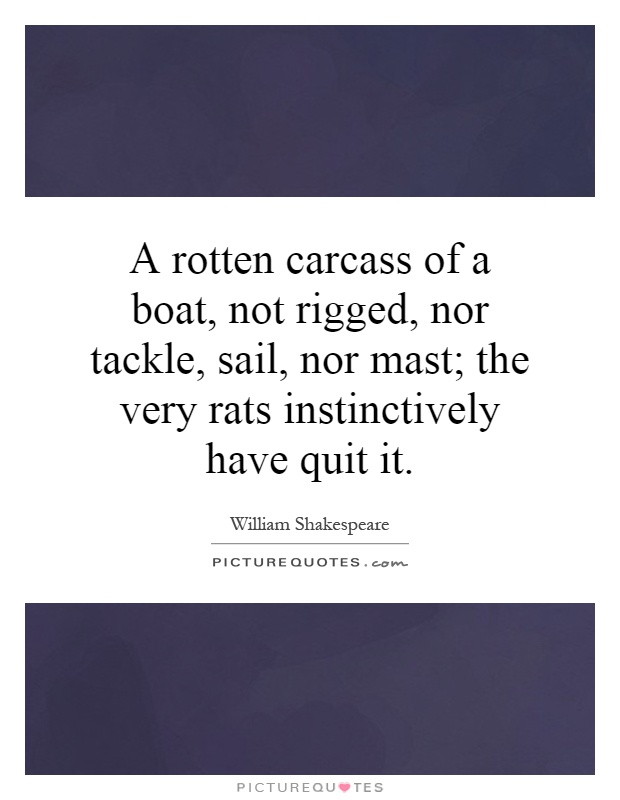A rotten carcass of a boat, not rigged, nor tackle, sail, nor mast; the very rats instinctively have quit it

A rotten carcass of a boat, not rigged, nor tackle, sail, nor mast; the very rats instinctively have quit it
In William Shakespeare's play "The Tempest," the line "A rotten carcass of a boat, not rigged, nor tackle, sail, nor mast; the very rats instinctively have quit it" is spoken by the character Gonzalo. This line is a powerful metaphor for the decay and abandonment of a once great vessel, which can be seen as a symbol for the downfall of society or an individual.The image of a rotten carcass of a boat conveys a sense of decay and neglect. The boat, which was once a sturdy and seaworthy vessel, has now fallen into disrepair and ruin. The absence of rigging, tackle, sail, and mast further emphasizes the state of disarray and abandonment. These essential components of a boat are missing, leaving the vessel unable to function or sail. The rats, which are known for their instinctual survival skills, have abandoned the boat, recognizing that it is no longer a safe or habitable environment.












 Friendship Quotes
Friendship Quotes Love Quotes
Love Quotes Life Quotes
Life Quotes Funny Quotes
Funny Quotes Motivational Quotes
Motivational Quotes Inspirational Quotes
Inspirational Quotes